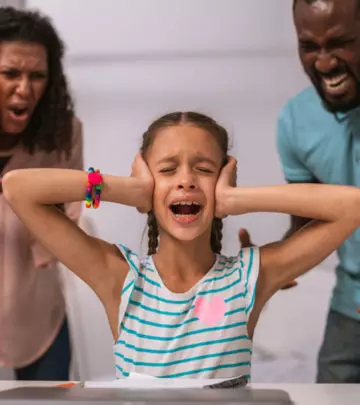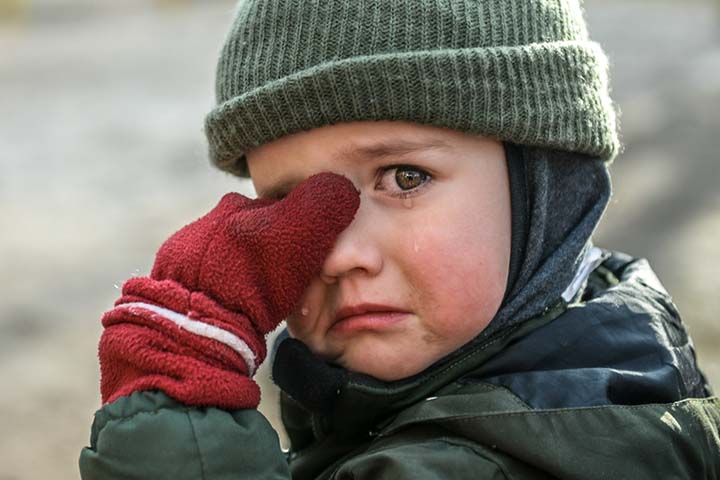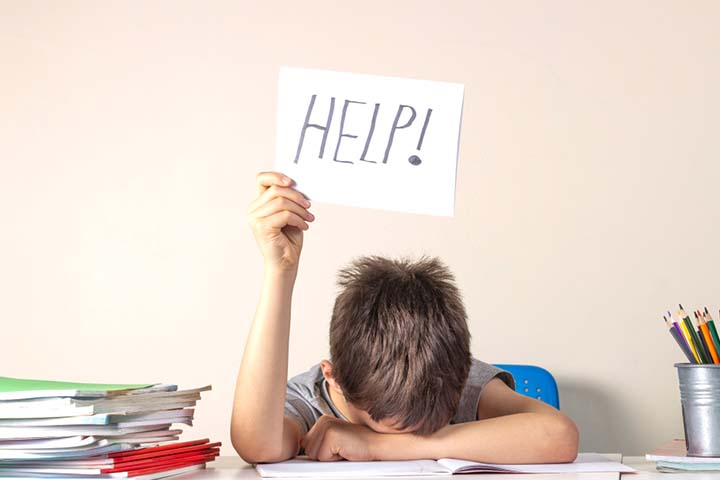
Image: Shutterstock
As parents, you want your child to be the best version of themselves. This can mean putting them in different extra curricular activities, making sure they can play instruments and a sport, keeping a tab on their grades and expecting them to be impeccably well mannered all the time. And although this sounds like a dream, it’s not exactly realistic. Sure, maybe your kid is polite most of the time and has varied interests but you cannot expect them to be perfect all the time. Kids who have parents who are overbearing in this manner often tend to rebel and act out anyway which can be frustrating for parents who have invested so much in them. But criticizing your children for not being able to perform the way you want them to is not the way to help them improve or encourage them to be consistent. So before you start grumbling about your kids without paying any mind to what they are doing right, here are a few things you should know about how criticism affects your child and their future. Read on to know more!
What Is Criticism?
Criticism involves expressing disapproval towards someone or something due to perceived flaws or mistakes. When you criticize your children, it not only highlights a potential error but also implies that the issue extends beyond the action itself and reflects on the person who committed it. In essence, it’s not just about labeling their actions as incorrect; it may suggest that they are wrong or even define them as “being bad.”
What Is A Child’s Thought Process When You Criticize Them?
Image: Shutterstock
Even when your child has made a mistake, scolding them out of anger can divert their focus from their actions to your emotional reaction. They may perceive the situation as unfair treatment, leading them to develop a victim mentality rather than taking responsibility for their behavior. Does this mean you should never correct them? Of course not. However, when reprimanding them, it’s crucial to do so constructively. Scolding a child for irresponsibility, without providing guidance, may inadvertently hinder their ability to learn and take accountability for their actions, preventing them from growing into responsible adults. Some parents believe that the main purpose of criticizing their child is to ensure good behavior to avoid future scolding. However, this approach often leads children to hide their actions and lie to their parents to evade conflict and scolding.
Can Criticism Help Your Child’s Upbringing?
Image: Shutterstock
Criticism does indeed impact your child, but not in the way you might intend. Children tend to internalize criticism, and those words can linger with them for a lifetime. Criticism often triggers feelings of shame, which can overshadow any lessons you’re trying to impart about right and wrong, particularly if your approach is harsh. It’s crucial to remember that during such moments, the powerful emotion of shame can obscure the message you’re trying to convey. Consequently, your child may come to believe they are inherently flawed and incapable of change.
How Can Criticism Affect Your Child’s Future?
Image: Shutterstock
Children who face frequent criticism may struggle to discern emotions displayed on the faces of others. This can be attributed to the avoidance technique people naturally employ to shield themselves from sources of discomfort and unpleasant feelings in their lives. Consequently, children with critical parents tend to avoid reading the facial expressions of others due to their fear of encountering critical attitudes. As a consequence, they often fail to perceive positive emotions directed toward them. This is why children raised by perfectionist or highly critical parents might find it challenging to accept compliments or may have difficulty recognizing expressions of appreciation from others.
Constant criticism can also weigh heavy on your relationship with your child and eventually destroy any trust they had in you. In order to foster a good trusting relationship the child must know that they are loved unconditionally and that they can make mistakes and learn from them. Remember, your child’s inner monologue will echo what you, their parent, says about them. So if you are constantly criticizing them, they will end up doing the same to themselves.
Raising kids is no easy task but you should never be the reason why your child questions their self worth or if they are worthy of love or admiration. No one is perfect and it’s okay if your child makes mistakes, as long as they are willing to learn from them. So the next time you are about to have an outburst and criticize them, take a step back and consider the implications. Happy parenting!















